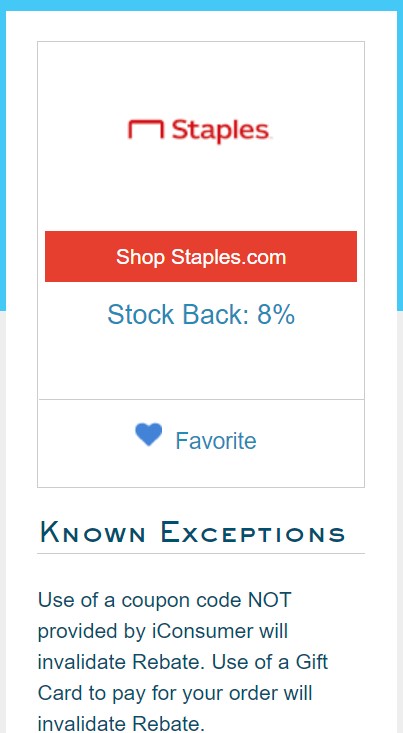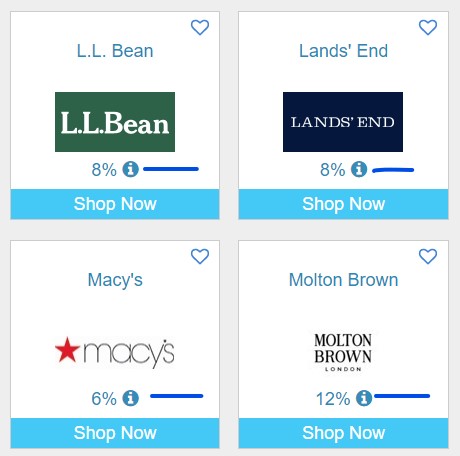Today we’re diving into the world of “exceptions”. Please forgive our attempt at a pun in this post’s title.

Exceptions are just that, exceptions. They are more detail on what a store will (and won’t) pay us for. And if they don’t pay us, you don’t earn stock. And we’re all less happy.
We hate exceptions, and we know you hate them as well.
Stores do business with us (they pay us money (commissions) and you earn stock) because we bring them customers. We like to think we bring them a better class of customer (people who are interested in the future, people who want to learn something about building a publicly-traded business, people who want to get their feet wet in owning stock).
Each store has different goals in making their relationship with iConsumer work. They want you to buy certain things or to do certain activities. They don’t like paying us for things that are unimportant to them. They certainly don’t want to pay iConsumer a commission that they’re also paying to somebody else. And most definitely, iConsumer wants to be paid for the sales a store makes because of us.
That’s where “exceptions” come in. Perhaps the store only wants to pay us for your first purchase (think Home Depot). Or perhaps a store feels that they don’t need us to help them sell some hot toy. Maybe they don’t want us to know what you purchase, so they don’t report to us purchasing behavior on a per customer basis (think Amazon).
It works the other way, too. Sometimes there is something the store really wants us to push. They’ll pay us extra to push a coupon code / promo / special offer that we then must ask you to use in order to get increased credit. And if they’re paying us extra, they don’t want you to use that coupon on some rinky dink cashback site.
Stores do a pretty good job of telling us what they will pay for, and what they view as exceptions. We do a pretty good job of telling you what we know. After all, if we don’t get paid, you don’t earn stock, and everybody is unhappy. But the system isn’t perfect.

We use “exceptions” to inform you of each store’s peculiarities. That’s the blue “i” that you see all over our site.
In order for that all to work, there is a bunch of technology behind the scenes that tracks and reports on the transactions you make. And eventually, results in money being sent to iConsumer.
It starts with the links you use to reach the store. For iConsumer (and you) to get credit, they’re specially encoded. That way, the store knows that iConsumer brought them the customer, and iConsumer (not the store – the links do NOT share WHO you are with the store) knows which customer should get credit.
Once you make a purchase, the store pretty quickly (and getting faster every year) tells us about the purchase. Once the time you’re given to return your purchase has passed, the store tells us that, and hopefully pays us. (The time they take to pay us has been increasing recently. #ThanksCovid)
We have three main ways for you to use the specially encoded links: any and all the links on our site, the iConsumer Button, and the Apple/Android apps. The Button and the apps make it easier for you to remember to grow the business in which you’re an investor with each and every purchase.
If you don’t use those links, we don’t get paid. Fortunately, the technology keeps getting better and easier to use, making for an increasingly exceptional user experience. (Sorry, but the puns just won’t be stopped.)